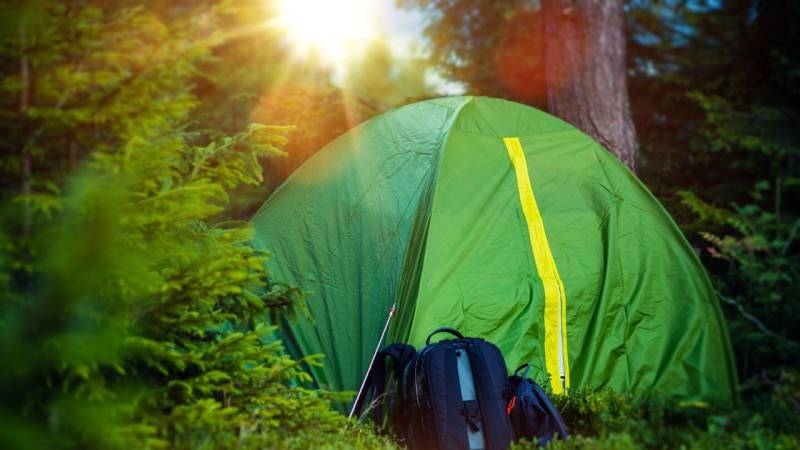
Wild camping in Germany: Here you may sleep legally in the wilderness
👉 The key facts from this guide
- Wild camping is generally prohibited in Germany and can result in fines.
- However, there are official wild camping sites, also known as nature campsites or bivouac and trekking sites, where overnight stays are allowed.
- Most of these sites are equipped with a platform for tents, a fire pit, a composting toilet, and seating.
- The cost for a night at these sites is often between 5 and 10 €.
- It is important to respect the rules of the respective sites and to leave the site clean.
- It is recommended to book the sites early as they are very popular.
What if you could legally go wild camping in Germany?
No (camping) neighbors. No hustle and bustle. No car noise.
With a legal campfire and a cute little toilet house.
Actually, this is possible in Germany.
I'll show you where you can go wild camping in Germany - legally.
Wild camping in Germany - the location
Basically, you are not allowed to camp in the wilderness without permission.
Camping is only allowed in designated campsites or with a permit in Germany. Wild camping is prohibited in Germany and can be punished as a petty offense. Camping on private property is only permitted with the owner's consent.
If you get caught sleeping in the woods, fines of up to 500 euros can be imposed - with property damage and trespassing even up to €5000.
But the urge for more nature is great in Germany.
Therefore, here is the good news:
There have been official wild camping sites, also known as natural tent sites or bivouac and trekking sites, for several years.
Bivouac and trekking sites are areas in the wilderness where you are allowed to stay overnight legally. Most of these sites are located on multi-day hiking trails.
You can find these bivouac and trekking sites almost all over Germany. Some of these wild camping sites also have a fire pit, compost toilet, and seating.
And that's exactly what I'm going to show you. I have sorted them by federal states - let's get started.
Baden-Württemberg
The Black Forest is Germany's highest and largest contiguous mountain range and is located in the southwest of Baden-Württemberg.
What's great is: Here you can set up your wild camp in the middle of nature. Choose one of the nine trekking camps from May to October.
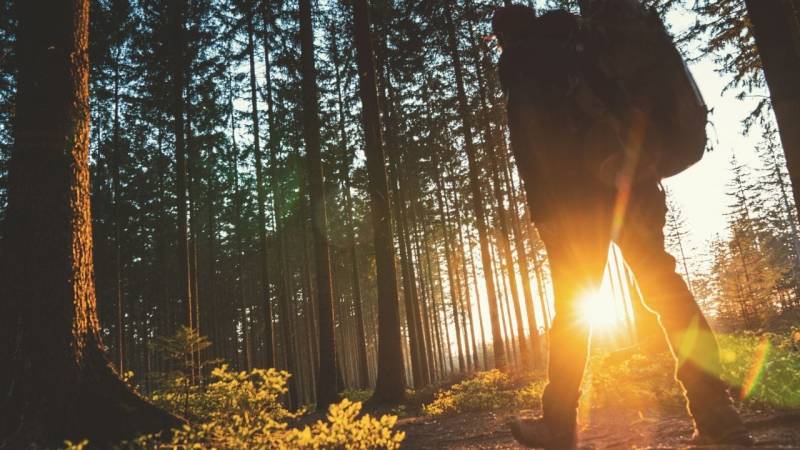
9 trekking camps are waiting for you in the Black Forest - legal wild camping in Baden-Württemberg; Picture: https://rcphotostock.com - © rcphotostock (8149)
What to expect in the camps:
- the camps are all located away from the villages
- the camps are only accessible on foot
- they have pitches for up to three tents
- there is a fire pit
- a toilet house is available
- an overnight stay costs €10 per tent (2-3 people)
More information at www.trekking-schwarzwald.de.
Bavaria
Wild camping in Bavaria? Yes, that's possible - in the Frankenwald, the Spessart and the Steigerwald.
There are a total of 17 overnight camping sites waiting for you. The season runs from April 1st to October 31st.
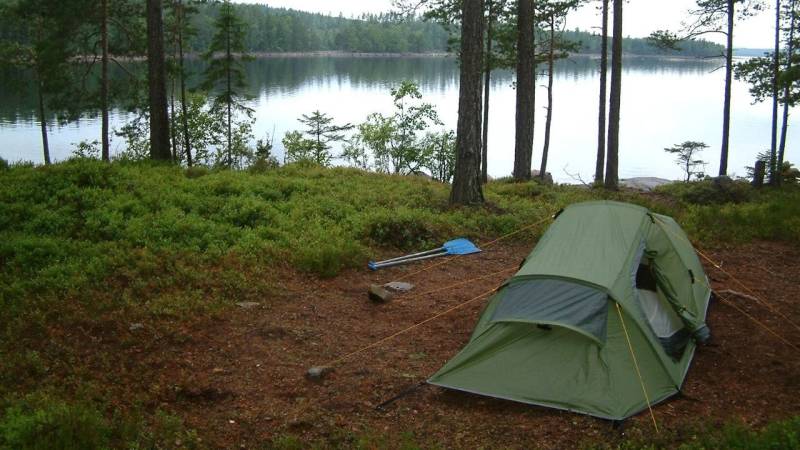
Wild camping in Frankenwald
- 3 overnight camping sites
- 10,- euros per night per tent
- space for at least 4 tents - some of which can be set up on wooden platforms or on the ground
- fire pit with benches
- plenty of firewood
- outdoor toilet
- water supply
You can find all the information and an online booking for the Frankenwald here.
Wild camping in the Spessart mountains
- 4 wild camping sites
- 10,- euros per night per tent
- for a maximum of five tents (for 2–3 people each)
- fire pit
- occasionally, a firewood storage and outdoor toilet
You can find all the information for wild camping in the Spessart mountains here.
Wild camping in the Steigerwald Forest
- 10 legally authorized wild camping sites
- Fireplace, toilet, and camping area available
- 4.80 euros per night and tent
Find all the information about Steigerwald at www.trekkingerlebnis.de.
Wild camping in the Altmühltal Valley
These 8 wild camping sites are primarily intended for canoeists, but anyone can camp here on the boat moorings.
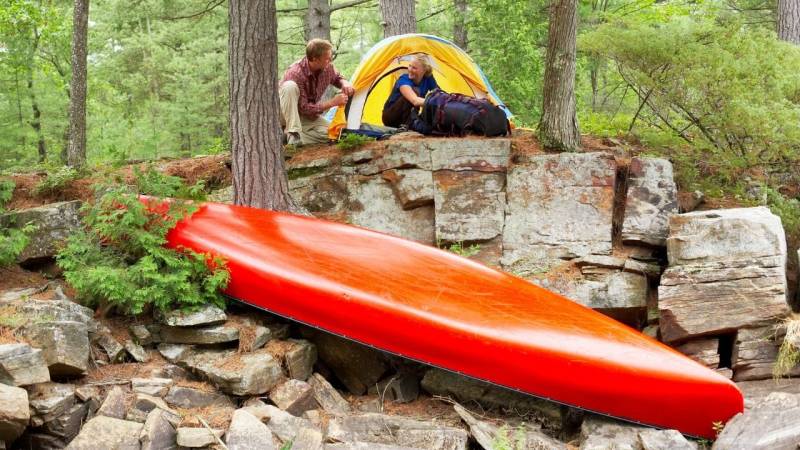
The maximum length of stay is two nights. Groups of more than 10 people must register and reserve the sites.
Unfortunately, all sites will remain closed during the 2020 season due to the coronavirus.
Find out more about the sites and plan your trip at www.naturpark-altmuehltal.de/bootsrastplaetze/
Berlin
Currently, there are no wild camping sites available in Berlin. Take a look at the alternatives listed below in the article.
Brandenburg
You can find more than 25 wild camping sites throughout Brandenburg for overnight stays. Many of the campsites are located near water and are therefore particularly suitable for canoeists.
Some sites have fireplaces or barbecue areas, while others do not. Most sites are free, and it's best to check out all the sites on www.reiseland-brandenburg.de.
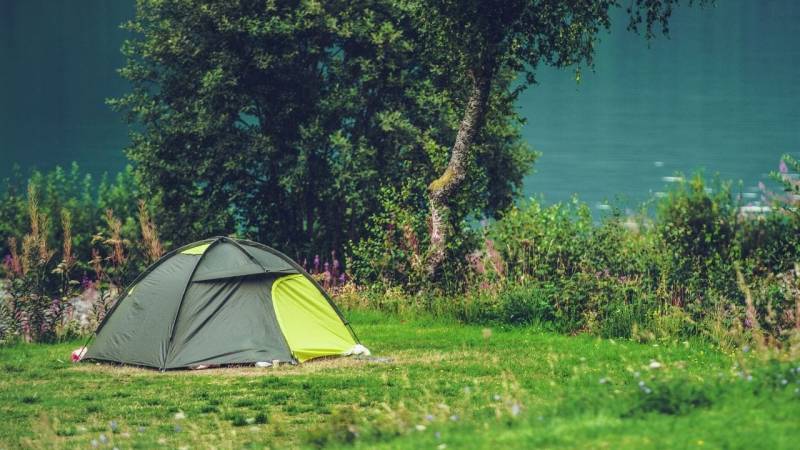
Bremen
Currently, there are no wild camping sites available in Bremen. Take a look at the alternatives listed below in the article.
Hamburg
Currently, there are no wild camping sites available in Hamburg. See the alternatives listed below in the article.
Hesse
In the Trekking Park Sauerland forest, you can find up to 9 trekking sites from April 1st to November 15th where you can camp wild. All locations are only accessible on foot.
Each campsite has a wooden platform for two tents or one large 4-person tent, a seating area with table and composting toilet.
You pay 15 euros per night for one person, 20 euros for two people, 24 euros for three people, and 28 euros for four people. You can find all the information about the Trekking Park Sauerland on the website www.trekkingpark.de.
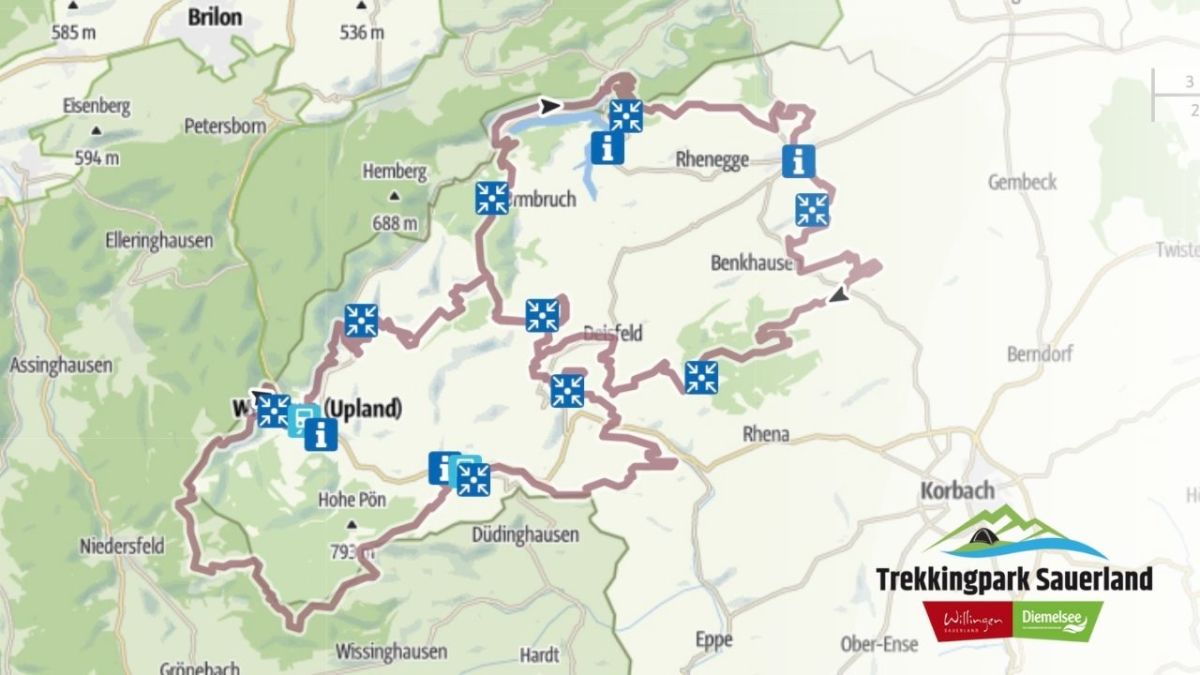
Mecklenburg-Western Pomerania
Currently, there are no wild camping sites available in Mecklenburg-Western Pomerania. Take a look at the alternatives listed in the article below.
Lower Saxony
Soon, it will also be legal to wild camp in Lower Saxony. The first trekking camp at Jägersteig is currently being built in the Harz Nature Park. The camp is designed for up to six people, and is equipped with minimalist wooden shelters, a fire pit, and a simple toilet with a composting toilet system.
North Rhine-Westphalia
Multiple trekking sites can be found in the Eifel region under the Hohes Venn Nature Park in North Rhine-Westphalia and Rheinland-Pfalz.
Hohes Venn Nature Park
You are allowed to camp to your heart's content on 17 sites throughout the Hohes Venn Nature Park. The natural campsites are equipped with a composting toilet and a platform for your tent. Up to two tents can fit on the wooden platforms.
You won't hear any car noise there, since all wild camping sites can only be reached via hiking trails.
A campsite costs €10 per night and can be booked here: http://www.trekking-eifel.de
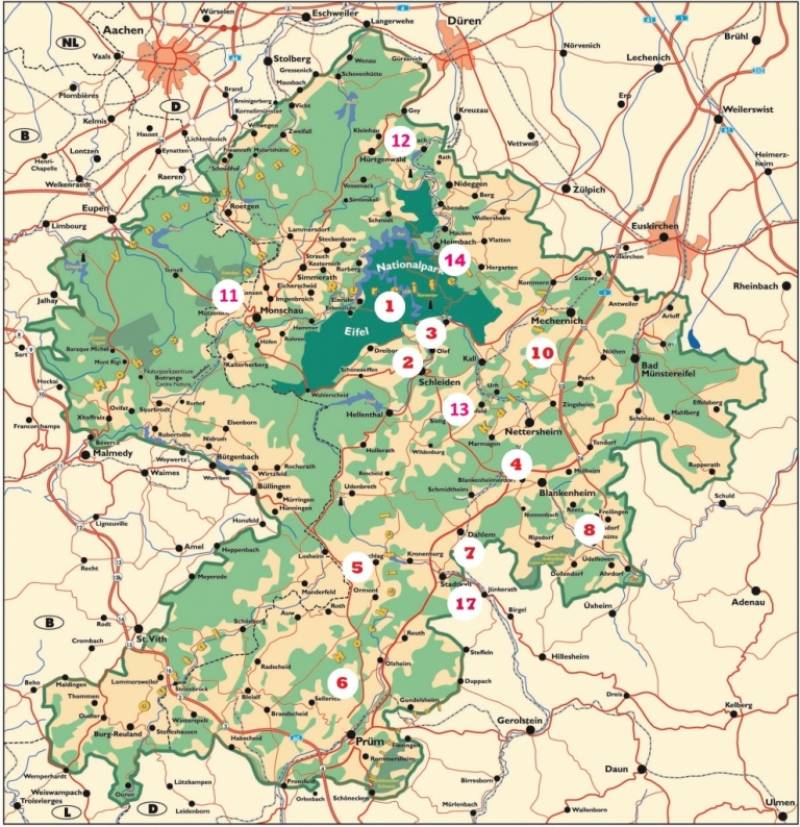
Rhineland-Palatinate
Rhineland-Palatinate offers wonderfully secluded wild camping sites.
Palatinate Forest
Around Kaiserslautern and Landau, you can find 15 wild camping sites. The booking costs 10 Euros and the season runs from April to October.
Particularly interesting for Bushcrafters:
A booking for 10 € is valid for one tent (2-3 persons). Accordingly, you can bring two bivouacs or two hammocks per booked tent site. Tarps require at least as much space as a 2-person tent, so here one tarp per booked tent site applies.
The camps are only accessible on foot and have a fire pit. Some camps allow up to six tents. Seating and a small toilet are included.
You can find all the information at www.trekking-pfalz.de.
Trekking camps in Soonwald forest
You can also find four trekking camps in Soonwald forest, which stretches across parts of the Bad Kreuznach and Rhein-Hunsrück districts. Again, a spot costs 10 Euros per night and you must register.
All camps are only accessible on foot. Hiking parking spaces are nearby. On the website www.soonwaldsteig.de you will find all the information for your trip.
Hunsrück-Hochwald National Park
In Hunsrück-Hochwald National Park, the camps are located near the national park entrances Wildenburg, Erbeskopf and Keltenpark. All camps are located away from the towns.
You can camp wild at a total of three camps, and they are only accessible on foot. Unfortunately, building fires is not allowed in these camps.
The facts:
- each trekking camp has 2 platforms
- each platform has space for 2 two-person tents or 1 four-person tent
- the camps are open from April 1st to October 31st
- costs: €10 per platform
You can find all the information and online booking at www.nationalpark-hunsrueck-hochwald.de.
Saarland
Currently, there are no wild camping sites available in Saarland. Refer to the alternatives below in the article.
Saxony
In Saxony, it is possible to set up camp in the Elbe Sandstone Mountains from April to October. Four bivouac sites invite you to camp, with or without a tent. Within a radius of 20 meters, you may set up your tent (up to 5 two-person mountain tents), your tarp, and your hammock.
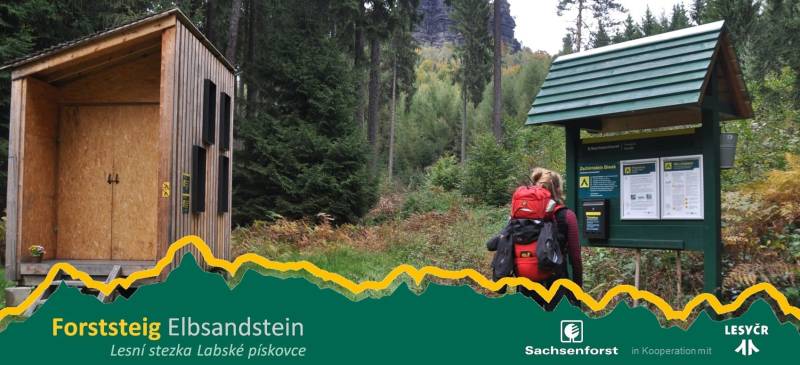
The bivouac sites have the following facilities:
- Shelter and seating area
- Space for up to 5 two-person tents
- Composting toilet
- Rainwater collector
You may visit the bivouac sites from 4 p.m. until 10 a.m. With a trekking ticket (buy here), you purchase permission to camp there. Adults pay 5 euros and children 1 euro per night.
Note: The purchase of a trekking ticket does not constitute a binding booking or reservation of a site. You may share the camp with others.
All information about the bivouac sites on the Forststeig Elbsandstein can be found at forststeig.sachsen.de.
Free Overnight Stays (Boofen)
As the name suggests, you are not allowed to sleep in a tent here.
In the Saxon Switzerland National Park, you may stay overnight in the open air at 58 locations. They are all located outside the core zone of the national park to protect fauna and flora. The wild camping sites have mainly been created for climbers.
Here are the key details:
- Building a fire is not allowed
- You must sleep without a tent
You can find all the information about Boofen at nationalpark-saechsische-schweiz.de. A complete list of sites and a PDF map are also available there.
Saxony-Anhalt
Currently, there are no wild camping sites available in Saxony-Anhalt. See the alternatives below in the text.
Schleswig-Holstein
In Schleswig-Holstein, there are designated trekking sites, which are also interesting for Bushcrafters. You may legally sleep for one night with or without a tent at 21 wild overnight sites.
You can find all the information about the often free wild camping sites at: https://www.wildes-sh.de.
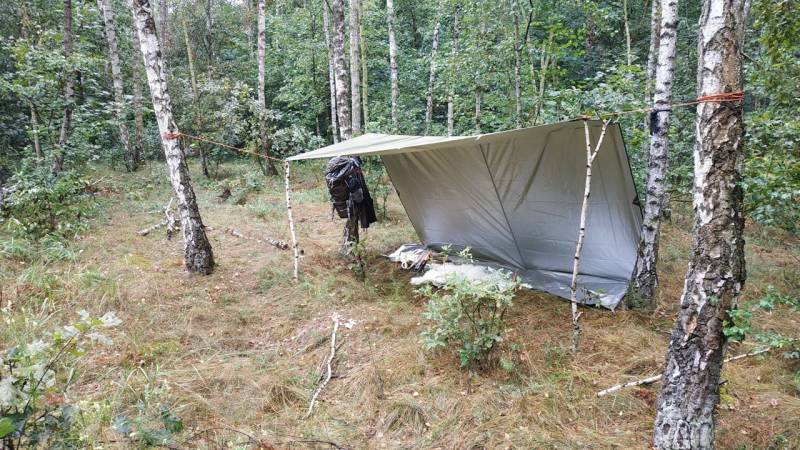
Thuringia
Currently, there are no wild camping sites available in Thuringia. See the alternatives below in the article.
If there are no wild camping sites near you
As I write in my article "Is sleeping in the forest allowed?", there are other ways to sleep in the wilderness:
- Ask the owner of the property for permission (the city, forestry office, private owner). You will be surprised how many people are nice and allow it.
- Sleep without a tent, for example in a hammock or just in a sleeping bag (here is my top list). This is not explicitly prohibited and is tolerated by many foresters and wardens.
- In emergency shelters, you can also lay out your sleeping bag, so you are protected from rain.
- Ask on farms if you can spend a night on the farm or on their land for a fee or help. (e.g., on bauernhofcamping.info)
- Ask at community or youth campsites, they are open to it.
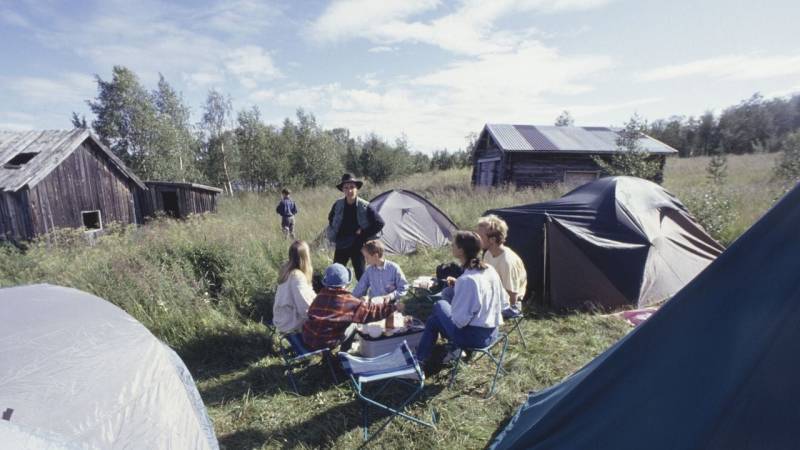
What equipment do you need for wild camping?
On all wild camping sites, it applies: You have to supply yourself. There is no snack bar or mini market where you can buy your drinks. You are really in the wilderness.
In some places, only raw water is available, which you should not drink without prior filtering and boiling.
You should also bring sufficient provisions and your equipment, such as:
- Tent / Bivouac Sack / Tarp / Hammock / Rain Protection (Top list of Tarps)
- Sleeping bag and mat (here is my top list)
- Weatherproof and warm clothing and footwear
- Cookware and containers
- Flashlight (my recommendation)
- Sanitary articles such as toilet paper, toothbrush, etc.
- Matches and lighter
- First aid kit (see my recommendations here)
Furthermore, note that the smartphone reception may not be sufficient. So inform your family or friends beforehand where you are.
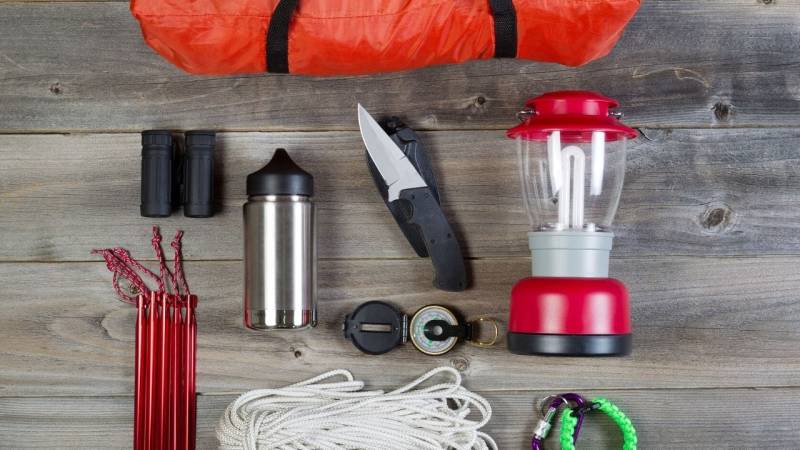
Bushcrafters should take the following with them:
- A branch saw or axe (here are my recommendations for axes and a saw)
- A knife (find your best bushcraft knife here)
- Rope / string / paracord (what is paracord?)
- Ways to start a fire
Also read my guide article "Bushcraft Beginner Equipment - 5 equipment items for bushcraft beginners".
Summary of Wild Camping
Is wild camping completely legal in Germany? Yes, it is!
You can find official wild camping sites throughout the state - usually even with a fireplace and toilet facilities. Overnight stays often cost only 5 to 10 euros, or are even completely free.
Please always observe the rules of use, precautions, and equipment tips of the providers at the sites.
Of course, we take our trash with us, leave the site clean, and protect nature.
Little tip: Book the sites as early as possible, they are very popular.
What are your experiences with wild camping sites? Write it here in the comments.


Author of the guide
Martin Gebhardt
Hey, I'm Martin. On my blog, you will learn the basics and numerous details about living in the wild. I think survival, bushcraft and the good life in nature are the keys to happiness. Find me here on Instagram or on YouTube. You can find more about my mission on the About Me page.
Was this guide helpful?
44 people found this guide helpful.
5.00 out of 5 points (44 Ratings)
Comments (0)
This post may contain affiliate links. So if you click on the links and make a purchase, I will receive a small commission at no additional cost to you. Click here, to learn more about it.


